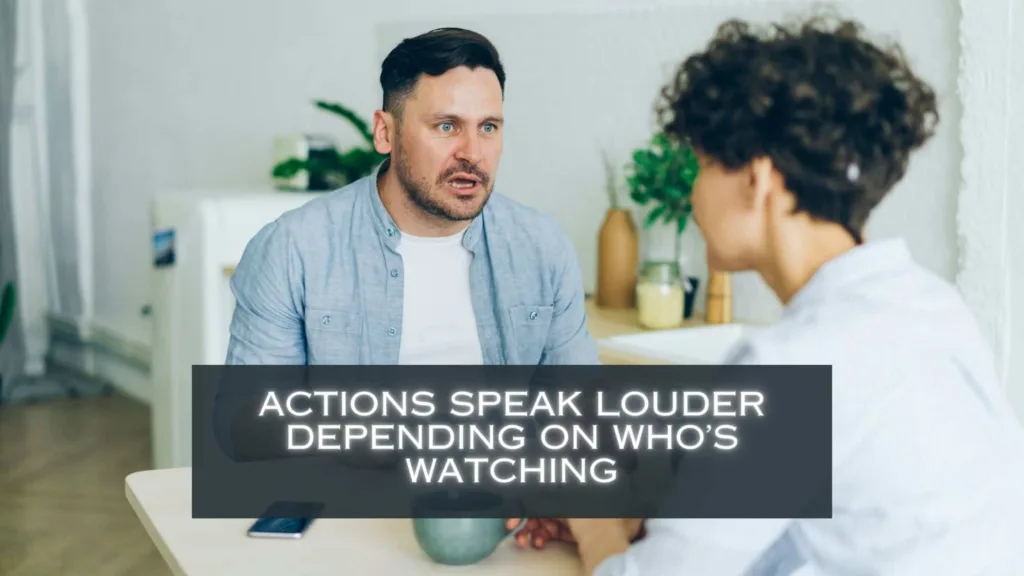Understanding how people see things can be really tricky. It’s like there’s a big puzzle made up of our thoughts, feelings, and the world around us. One piece of this puzzle is something called the Actor Observer bias. This is when we tend to say that outside things caused our actions, but when we look at what other people do, we often say it’s because of who they are inside. In this article, we’re going to explore what the actor-observer bias is, why it happens, how we see it in everyday life, and what it means for how we understand each other.
What is Actor Observer Bias?
The Actor Observer Bias is a fancy way of saying that we explain our own actions by talking about what’s happening around us, but when we look at what other people do, we often say it’s because of their personality. For example, let’s say you trip and fall while walking on a cracked sidewalk. If you’re explaining what happened to someone, you might say, “I tripped because the sidewalk was broken.” That’s blaming the situation, right? But if you see someone else trip and fall on the same sidewalk, you might think, “They’re clumsy.” That’s blaming the person. So, the actor-observer bias is when we give different reasons for our own actions compared to other people’s actions.
Reasons behind
There are a few reasons why the actor-observer bias happens. First, when we think about ourselves, we can look inside our heads and understand why we do things. But when we look at other people, we can’t do that. So, we just make guesses based on what we see them do.
Second, when we watch someone do something, like trip on a sidewalk, we pay attention to that action more than anything else. We might not think about other reasons why they tripped, like if the sidewalk was uneven. But when we trip, we’re more likely to notice things around us, like if the sidewalk is bumpy. So, what we notice can change how we explain things.

Practical Examples of the Bias
Let’s look at some everyday situations where the actor-observer bias pops up:
- Driving: If you accidentally cut someone off in traffic, you might think, “Oops, I didn’t see them because I was focused on the road.” But if someone else cuts you off, you might grumble, “They’re such a bad driver!”
- School: If you do poorly on a test, you might blame it on not having enough time to study. But if someone else does badly, you might think they’re just not very smart.
- Friends: If you have to cancel plans with a friend, you might explain, “I got stuck at work.” But if your friend cancels on you, you might think they’re flaky or unreliable.
These examples show how we often explain our own actions by talking about what’s happening around us, but when we look at what other people do, we often say it’s because of who they are inside.
Related Article: Emotional Reasoning: Feel, Understand, Decide
Applications of Actor Observer Bias
Knowing about the actor-observer bias can help in therapy and workplaces. In therapy, it helps people realize they’re not always at fault for everything and can be kinder to themselves and others.
- Therapeutic Settings: Therapists can teach their clients about this bias so they don’t blame themselves too much and understand others better. This can lead to more caring and understanding towards themselves and others.
- Workplaces: In workplaces, it helps bosses and coworkers understand each other better, so they can work together well and create a friendly atmosphere. For example, if a boss understands this bias, they might not think an employee is lazy if they make a mistake. Instead, they might consider other reasons, like if the employee had a lot of work or was dealing with personal problems. This can lead to better communication and less fighting at work, making everyone happier.
The actor-observer bias helps us understand how we see things and why we think the way we do. It shows that we often explain our actions and other people’s actions in different ways. Sometimes, we blame what’s happening around us for our own actions, but we blame people’s personalities for their actions. This bias reminds us that our judgments can be influenced by our own feelings and experiences. Being aware of this bias can help us be kinder and more understanding towards others in our personal and work relationships.
